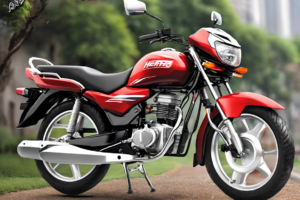Jaipur, the capital city of the state of Rajasthan in India, is renowned for its rich history, stunning architecture, and vibrant culture. Known as the Pink City due to the color of its buildings, Jaipur is a popular tourist destination attracting visitors from all over the world. One important factor that significantly impacts the experience of visitors to Jaipur is its weather.
Understanding the weather in Jaipur is crucial for anyone planning a trip to this beautiful city. Jaipur experiences a semi-arid climate, characterized by hot summers, mild winters, and low rainfall. The city enjoys abundant sunshine throughout the year, making it an attractive destination for tourists looking to soak up some sun. However, it’s important to be prepared for the extreme temperatures that Jaipur can experience during certain times of the year.
Seasons in Jaipur
Summer (March to June)
- Jaipur’s summer season begins in March and lasts until June, with temperatures ranging from 32°C to 45°C (90°F to 113°F).
- Heatwaves are common during the summer months, with temperatures occasionally soaring above 45°C (113°F).
- It is advisable to wear light, breathable clothing and stay hydrated to combat the heat.
Monsoon (July to September)
- The monsoon season in Jaipur typically begins in July and lasts until September.
- Rainfall is sparse in Jaipur compared to other parts of India, with the city receiving an average of around 600mm of rainfall annually.
- The monsoon brings much-needed relief from the scorching heat, but occasional heavy showers can lead to waterlogging and traffic disruptions.
Winter (October to February)
- Winter in Jaipur sets in around October and lasts until February, with temperatures ranging from 10°C to 27°C (50°F to 81°F).
- Fog can be a common occurrence during the winter months, especially in the early mornings and late evenings.
- Visitors are advised to pack warm clothing, especially for the chilly nights.
Best Time to Visit Jaipur
The best time to visit Jaipur is during the winter months, from October to March, when the weather is pleasant and conducive for exploring the city’s attractions. The days are sunny, and the nights are cool, making it ideal for sightseeing and outdoor activities.
Weather Hazards in Jaipur
While Jaipur generally enjoys a favorable climate, there are some weather hazards to be aware of:
Heatwaves
- Heatwaves are a common occurrence in Jaipur during the summer months, with temperatures rising above 45°C (113°F).
- Visitors are advised to stay indoors during the hottest part of the day and drink plenty of fluids to stay hydrated.
Dust Storms
- Dust storms are another weather hazard that can occur in Jaipur, especially during the dry summer months.
- These storms can lead to reduced visibility and air pollution, so it’s important to take precautions if a dust storm is forecasted.
Monsoon Rains
- While Jaipur does not receive as much rainfall as other parts of India, monsoon rains can still lead to localized flooding and waterlogging in the city.
- Visitors should be prepared for occasional heavy showers during the monsoon season.
Weather Forecast in Jaipur
To plan your trip effectively, it’s essential to stay updated with the weather forecast in Jaipur. Websites and apps like the India Meteorological Department (IMD) and AccuWeather provide reliable forecasts for Jaipur and can help you plan your activities accordingly.
FAQs about Weather in Jaipur
1. What is the hottest month in Jaipur?
The hottest month in Jaipur is May, with temperatures often exceeding 45°C (113°F).
2. Does Jaipur experience fog during winter?
Yes, Jaipur often experiences fog during the winter months, especially in the early mornings and late evenings.
3. How much rainfall does Jaipur receive annually?
Jaipur receives an average of around 600mm of rainfall annually, with the majority of the rain falling during the monsoon season.
4. Are dust storms common in Jaipur?
Yes, dust storms can occur in Jaipur, especially during the dry summer months. These storms can lead to reduced visibility and air pollution.
5. What is the best time to visit Jaipur?
The best time to visit Jaipur is during the winter months, from October to March, when the weather is pleasant and conducive for sightseeing.
6. How should I dress for the weather in Jaipur?
During the summer months, it’s advisable to wear light, breathable clothing. In winter, pack warm clothing for the chilly evenings.
7. Are there any weather hazards to be aware of in Jaipur?
Yes, visitors should be aware of heatwaves, dust storms, and occasional heavy rainfall during the monsoon season in Jaipur.
Conclusion
In conclusion, understanding the weather patterns in Jaipur is essential for anyone planning a trip to this vibrant city. By being aware of the seasonal variations, weather hazards, and best time to visit, visitors can make the most of their time in Jaipur and enjoy all that this historical city has to offer. Remember to check the weather forecast before your trip and pack accordingly to ensure a comfortable and enjoyable experience in Jaipur.



